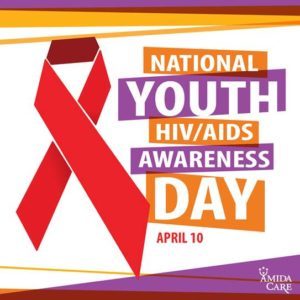National Youth HIV/AIDS Awareness Day: Making Health a Top Priority

These days, it’s more important than ever to make health a top priority. The COVID-19 pandemic has changed the way we live, especially the way we socialize, due to public health mandates to stay indoors and avoid large gatherings. Young people are not immune to COVID-19; it’s crucial for all of us to adhere to these guidelines, for our own health and for the health of those around us.
In addition, many young people in the U.S. are living with or are placed at high risk of contracting HIV. Friday, April 10 is National Youth HIV/AIDS Awareness Day, a day to educate the public about the impact of HIV on young people and to highlight the work being done to end the epidemic. This year, we emphasize the importance of prioritizing health, given the exacerbating effects of the coronavirus.
According to the most recent statistics from the Centers for Disease Control (CDC), youth aged 13 to 24 made up 21% of new HIV diagnoses nationwide in 2017. Young people with HIV are the least likely of any age group to seek out health care in a timely manner and achieve a suppressed viral load.
In New York City, out of the 1,917 people newly diagnosed with HIV in 2018, the highest number was among people 20 to 29 (35%). Of the approximately 7,900 youth living with HIV in New York City that year, about 70% had a suppressed viral load, compared to 83% among all age groups. As with all age groups, the majority of new diagnoses occur among Black males; among females, young Black women are disproportionately affected.
Prevention challenges include:
• Low rates of testing, resulting in higher rates of undiagnosed HIV;
• Low rates of PrEP (Pre-Exposure Prophylaxis) use. PrEP is a game-changing pill that is over 90% effective in preventing HIV and is critical to end the epidemic; and
• Stigma and misperceptions around HIV.
Young people must have access to information and tools they need to reduce their risk, make healthy decisions, and get treatment and care if they have HIV. Schools must continue to teach young people about HIV and other STIs, promote communication between youth and their parents, and support student access to confidential HIV counseling and testing services.
Resources
Educational materials from New York State Department of Health
Advocates for Youth
CDC NYHAAD Resources
Amida Care can also help. Amida Care is a Medicaid Special Needs Health Plan (SNP) that currently serves 7,500+ members throughout the five boroughs of New York City, including people living with or those placed at elevated risk for HIV. Please contact us at 1-855-GO-AMIDA to be directed to more health resources.
